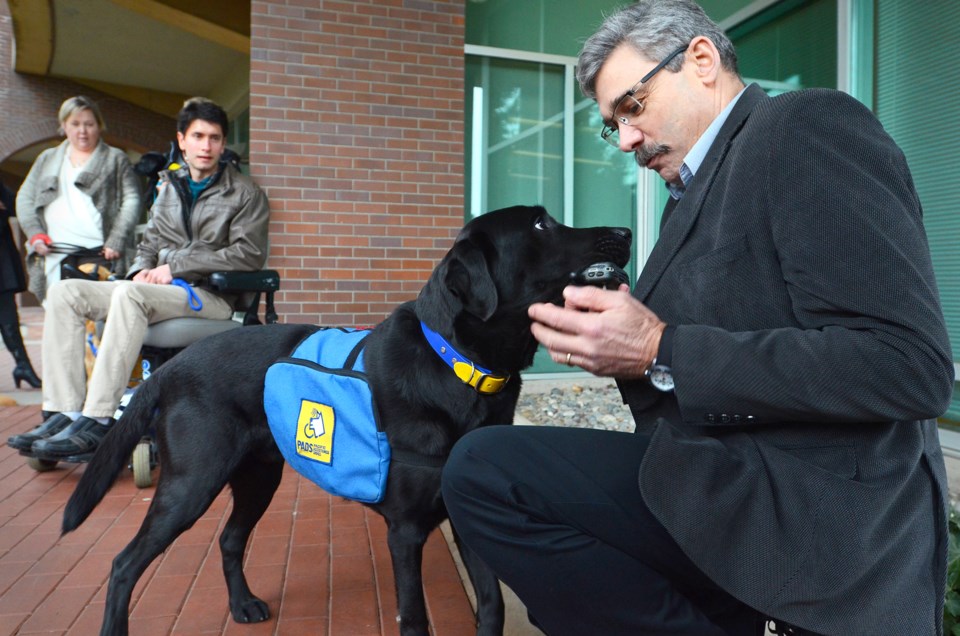If your dog can’t resist the delicious scent of food in a restaurant or the attention of strangers in a mall, he’s probably not cut out to be an assistance dog.
Such temptations are the stuff of a new assessment now being administered by the Justice Institute of B.C. in New Westminster as part of new legislation governing B.C.’s guide and service dogs.
Under the Guide and Service Dog Act, which came into effect Monday, certified dogs and handlers are now being issued government identification cards based on new training standards.
Canine helpers not trained by an accredited guide- or service-dog organization – such as the Pacific Assistance Dogs Society (PADS) in Burnaby or B.C. and Alberta Guide Dogs in Delta – now have to be tested by the Justice Institute to make sure they know how to behave in public.
“It’s a public safety test,” JIBC security training programs manager Karen Johnson told the Record. “It’s not to determine whether the dog is proficient at what they’re supposed to be assisting the individual with.”
B.C. and Alberta Guide Dogs CEO Bill Thornton said the new legislation will weed out dogs and handlers without proper training and help his clients and trainers operate more effectively.
“Now people will know it’s a legitimate team, and it’s that card issued by the government, so it’s a huge strengthening to what we had,” Thornton said at a media event ushering in the new laws at JIBC last Friday.
PADS apprentice trainer Rob Mackay agreed.
“We expect a huge amount of obedience from our dogs,” he said, “and some schools that are not certified might not have that same standard, and we want everybody to understand that our dogs are always going to be at their best when in public.”
The B.C. Guide Dog and Service Dog Assessment, developed with input from the Justice Institute, aims to ensure guide dogs or service dogs are unobtrusive in public places and demonstrate appropriate public behaviour.
Canines have to pass all 40 of the exercises set out in the assessment to pass.
No dogs have yet been assessed, according to Johnson, but JIBC has contractors on standby to administer the test.
Besides new standards for assistance dogs, the Guide and Service Dog Act also includes stiffer penalties for people who deny assistance dogs and their handlers access to public spaces or tenancy in strata properties.
“People that have difficulty getting around, this is going to enhance their capability significantly,” said Public Safety Minister Mike Morris, who was also at the Justice Institute Friday. “It’s going to go a long way towards making B.C. one of the most accessible provinces in Canada.”



